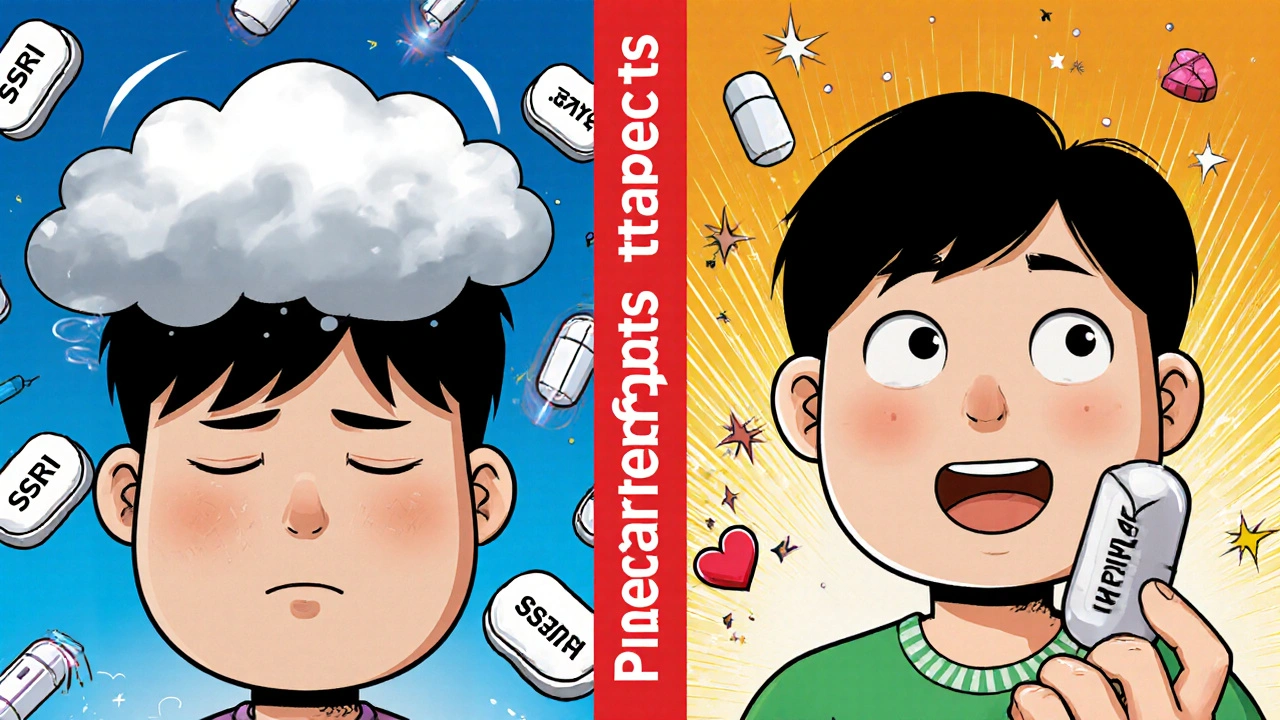Antidepressant Side Effects: What You Need to Know Before Starting Treatment
When you start an antidepressant, a medication used to treat depression and some anxiety disorders by balancing brain chemicals. Also known as antidepressive agents, these drugs can change how you feel—but they also change how your body works. Not everyone gets side effects, but if you do, they’re usually strongest in the first few weeks. Many people quit because they don’t expect how strange it can feel: nausea, sleep changes, weight shifts, or even feeling more anxious before getting better. You’re not broken. You’re just adjusting.
Most common antidepressants fall into two groups: SSRIs, selective serotonin reuptake inhibitors, the most widely prescribed type. Also known as serotonin boosters, they include drugs like sertraline and fluoxetine. and SNRIs, serotonin-norepinephrine reuptake inhibitors, which affect two mood-related chemicals. Also known as dual-action antidepressants, they include venlafaxine and duloxetine. SSRIs are gentler on the stomach but can cause sexual side effects—lowered libido, trouble reaching orgasm—that stick around longer than you’d hope. SNRIs might raise blood pressure or cause more sweating. Neither is better overall; it’s about what fits your body. And if you’ve been on one for months or years, stopping suddenly can trigger withdrawal symptoms, a set of physical and emotional reactions that happen when you reduce or stop antidepressants too fast. Also known as discontinuation syndrome, it includes dizziness, brain zaps, and flu-like feelings. That’s why tapering slowly under a doctor’s watch isn’t optional—it’s essential.
Antidepressants don’t play well with everything. Mixing them with certain painkillers, herbal supplements like St. John’s wort, or even some cold meds can spike serotonin levels dangerously high—a condition called serotonin syndrome. Symptoms? Confusion, fast heartbeat, high fever, muscle stiffness. It’s rare, but it’s real. And if you’re on other meds for heart issues, thyroid problems, or seizures, your doctor needs to know. These drugs don’t live in isolation. They interact. That’s why your pharmacist should review your full list every time you get a new prescription.
Some side effects fade. Others stick around. Weight gain? Common with some, rare with others. Insomnia? Often early on, usually improves. But if you’re feeling worse after two weeks, or having thoughts you didn’t have before, call your provider. This isn’t weakness. It’s monitoring. The goal isn’t just to feel less sad—it’s to feel like yourself again, without new problems replacing the old ones.
Below are real stories and science-backed guides from people who’ve walked this path. You’ll find what works, what doesn’t, and how to spot trouble before it escalates. No fluff. Just what you need to stay safe and make smarter choices with your treatment.

